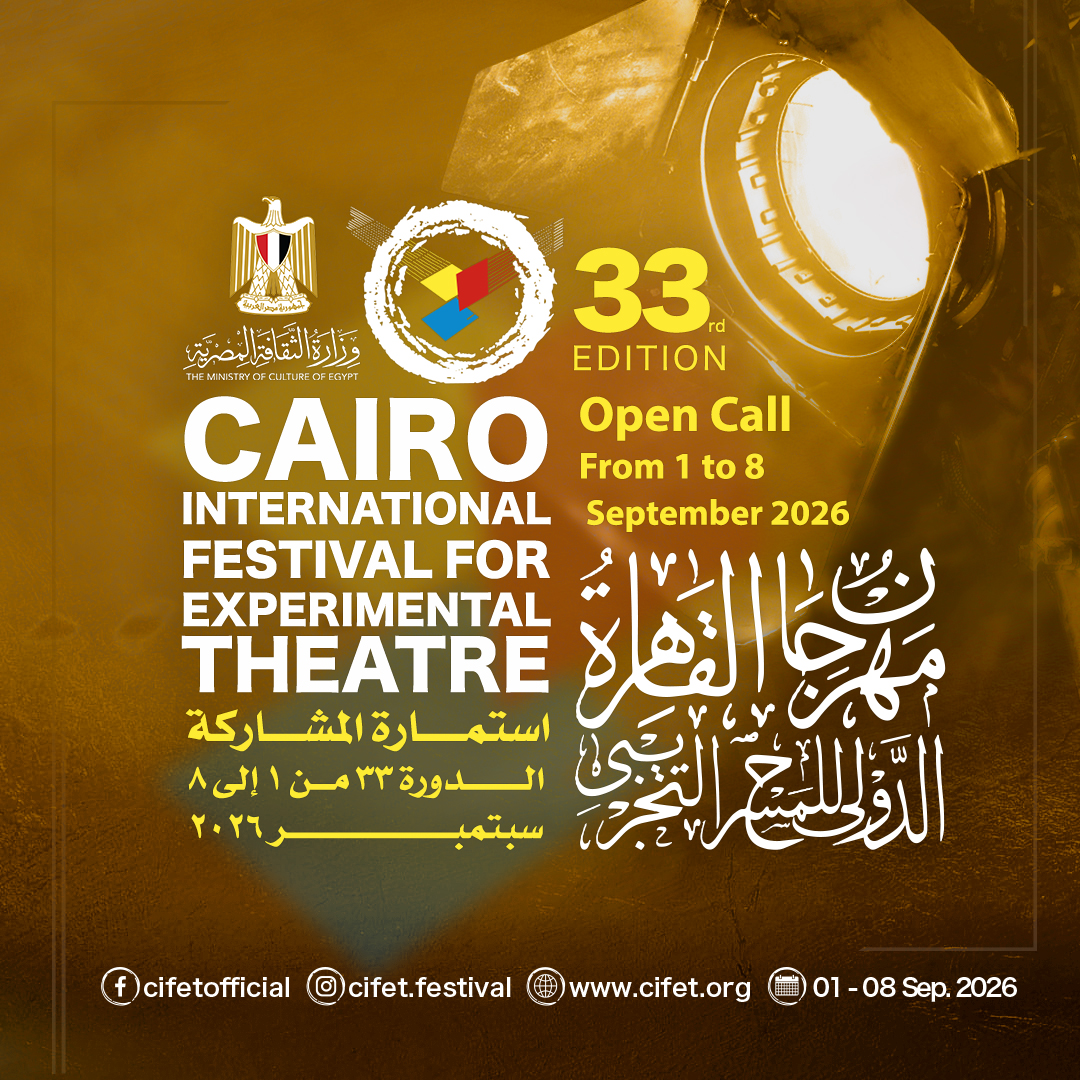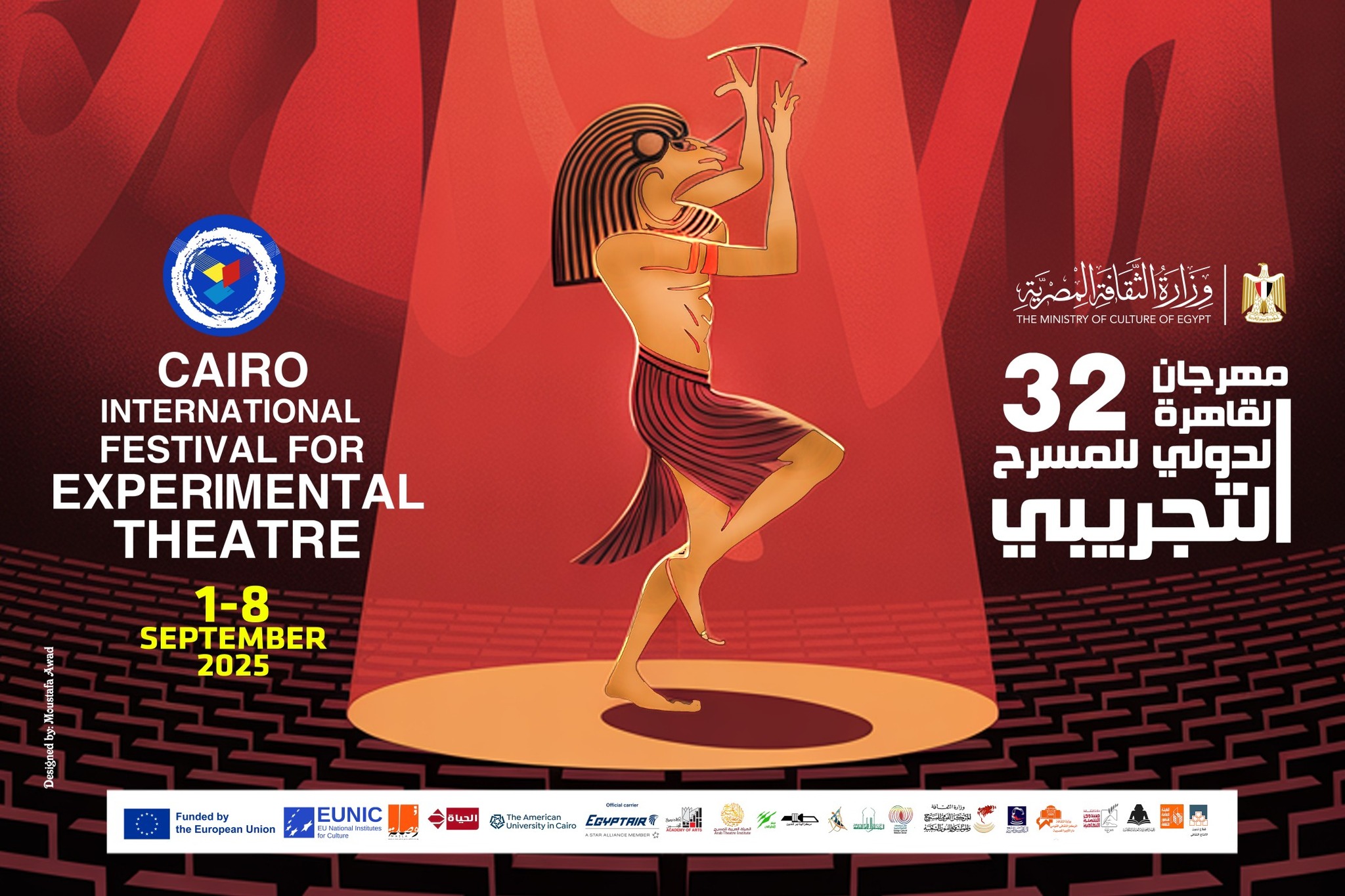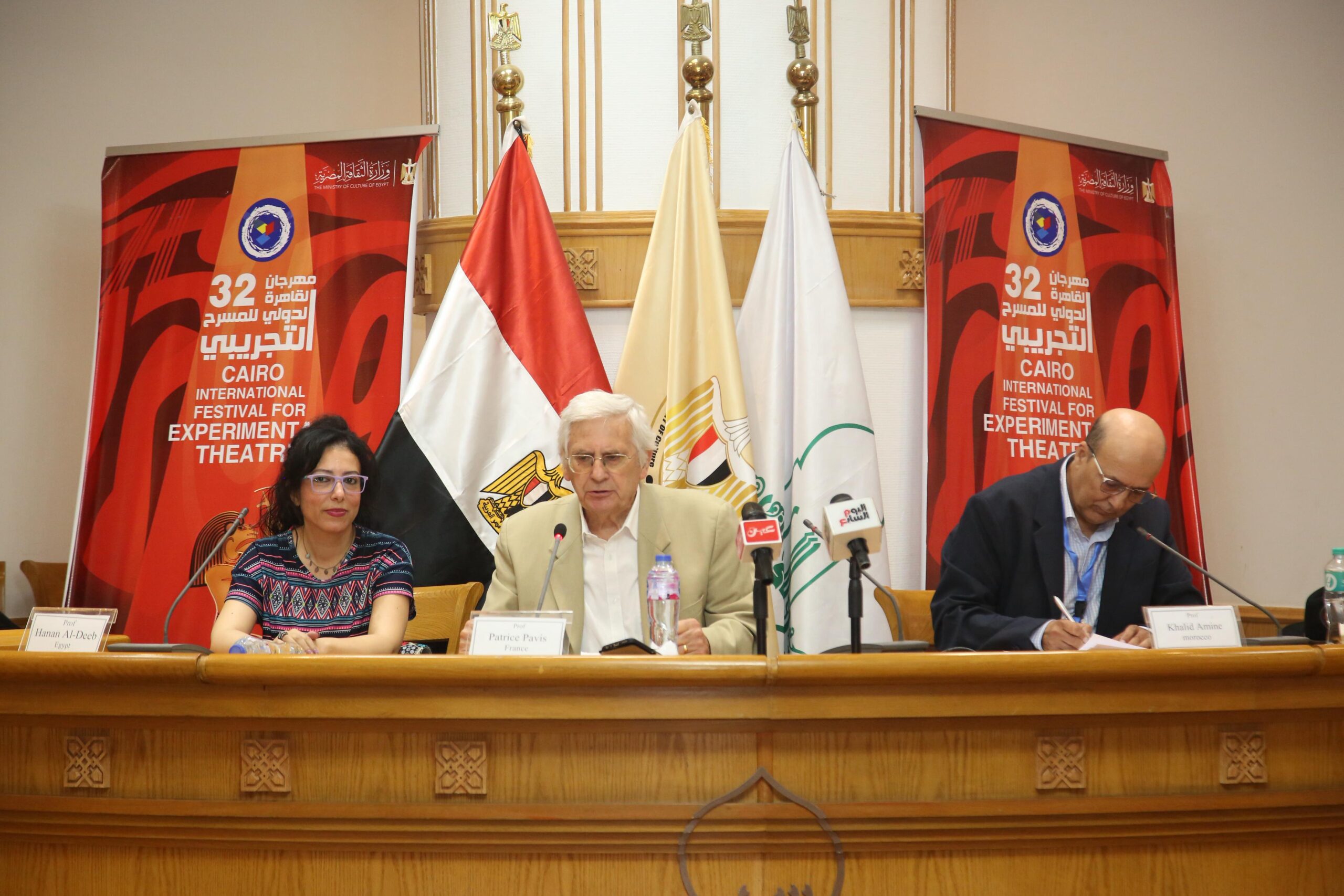Critics and Artists: Egypt’s experimentation was founded on dismantling and rebelling against the “Word Theatre.”, rejecting the Aristotelian concept
Critic, Ahmed Abdel Razek: there is no all-encompassing definition for experimentation
Ahmed Khamis: There are several folklore-inspired experimentation works
Hossam Atta: The most important part of experimentation is criticism
Tariq Al-Duwairi: As playwrights, we were influenced by the Experimental Theatre Festival
Abdul Karim Al-Hagrawi: In Egypt, experimentation is based on rejecting the Aristotelian concept
Cairo, September 4, 2023
The 30th CIFET hosted the sixth dialogue session, a round table discussion on “Theater Experimentation in Egypt, Problems and Solutions,” today, Monday, September 4th, at noon, in the main hall of the Supreme Council of Culture. Participants included Dr. Hossam Atta, director Tariq Al Dwairi, critics Ahmed Khamis and Ahmed Abdel Razek Abu El-Ela, and Dr. Abdul Karim Al-Hajarawi. Dr. Samia Habib moderated the session
Dr. Samia Habib, Professor of Criticism at the Higher Institute of Art Criticism, Academy of Arts, was eager to pay tribute to the late and most prominent figures in Egyptian theater history, such as Saad Ardash, Karam Mutawa, and many others. She also sent a message to current playwrights and all theater figures, saying, “Go on, experimentation needs you a lot
“Despite the numerous writings addressing experimentation, there is no clear, all-encompassing definition for experimentation,” said Egyptian theatre critic Ahmed Abdel-Razek Abu El-Ela. Experimentation is a form of rebellion that has existed in Egypt since the 1960s, when Tawfiq al-Hakim wrote “Ya Tale al-Shajara” and the book “Our Theatrical Template,” following which many writers’ experiments that established the rules of experimental theater emerged, including Youssef Idris, Intisar Abdel-Fattah, Hassan Al-Wazir, and others
According to theater critic Ahmed Khamis, there is experimentation based on folklore, which is presented in many important writings, but there is also experimentation based on modern theatrical dancing, for which some production appeared to keep pace with theatrical dancing around the world. He stated in this context that Walid Awni, a Lebanese choreographer, was one of those who worked hard in this field, and many students followed in his footsteps. Khamis concluded his speech by recommending that the Ministry of Culture establish a troupe to oversee theater experimentation, and that attention be paid to troupes pursuing this genre
“Experimentation in Egypt went through three stages,” said Dr Hossam Atta, emphasising that criticism, along with translation and creative practice, is one of the most important elements of experimentation. The experimentation project began as an idea, and many questioned it because they believed it was working on dismantling “The Word Theatre.” That idea, however, faded as time passed, and new experiences emerged. He clarified that, while prominent figures in experimentation, such as Tariq Al-Duwairi and Khaled Jalal, have been influenced by what he refers to as a “experimentation magnet,” these experiments are “intermittent,” as he puts it. It is essential to have an institution that believes in experimentation
“I would like to pay tribute to Nihad Saliha, Hoda Wasfi, Muhammad Abu Al-Saud and other prominent theater figures who had an impact on my life before I talk about my own experience,” said Salwa Muhammad Ali, indicating that one of her first works in experimental theater was with Director Nasser Abdel Moneim, who confirmed that she learned a lot from Moataza Salah Abdel Sabour
The presence of the experimental festival at the start of my theatrical career was crucial. I remember a performance by Mahmoud Al-Bazawi at Higher Institute of Theatrical Arts called “Emperor Ashour.” that made us believe we could see the world differently, and that the Experimental festival is a must,” director Tariq Al-Duwairi said
Dr. Abd al-Karim al-Hajarawi concluded, “I see that experimentation in Egypt depends on currents that reject the Aristotelian concept, and on directors who relied on folklore while taking what is in line with their vision from international currents





رأيان حول “CIFET’s sixth dialogue session”
Your article helped me a lot, is there any more related content? Thanks!
Your article helped me a lot, is there any more related content? Thanks!